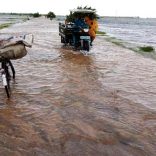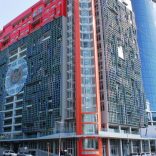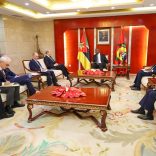Mozambique: Central bank governor attends inauguration of Metical Square in Quelimane
Mozambique’s economy facing downturn in productive sectors

FILE - For illustration purposes only. [File photo: Notícias]
Mozambican Finance Minister Carla Loveira has warned that the country’s economy is facing a downturn in the productive sectors, forcing the government to implement restrictive fiscal and monetary areas.
According to the minister, speaking at a meeting with the World Bank’s regional director for Mozambique, Fily Sissoko, on the sidelines of the Annual Meetings of the International Monetary Fund (IMF) and the World Bank, taking place in Washington, the Mozambican economy is experiencing a period characterized by a downturn in economic activity in productive sectors and structural challenges in public finances.
The Minister explained that this situation results from interconnected factors, such as the government’s insufficient revenue collection capacity, the rapid growth of public expenditure, particularly with arrears, debt service, and external shocks.
According to government data, the illegal export of goods produced in Mozambique and tax evasion is worth more than half of Mozambique’s Gross Domestic Product (GDP) annually. It means that the country loses between 10 and 15 billion dollars annually.
READ: Mozambique: Government strengthens dialogue with World Bank
“The current situation has increased the government’s financing needs and progressively deteriorated its ability to provide basic services to the population, compromising the country’s levels of human and social development”, she said.
According to Loveira, the government’s fiscal and monetary measures, reflected in the Economic Recovery and Growth Plan (PRECE), are aimed at stimulating the economy as well as restoring macro-fiscal balance.
Sissoko said that the portfolio review with the government is one of the measures the World Bank has identified to support the management of good governance and a favourable business environment.
At the meeting, the minister also discussed with the World Bank the priority sectors that need to be addressed, claiming that “economic opportunities to create jobs, macro-fiscal stability to stimulate the private sector and Foreign Direct Investment, development corridors, and the agribusiness and tourism value chain” are crucial to boost the economy.












Leave a Reply
Be the First to Comment!
You must be logged in to post a comment.
You must be logged in to post a comment.